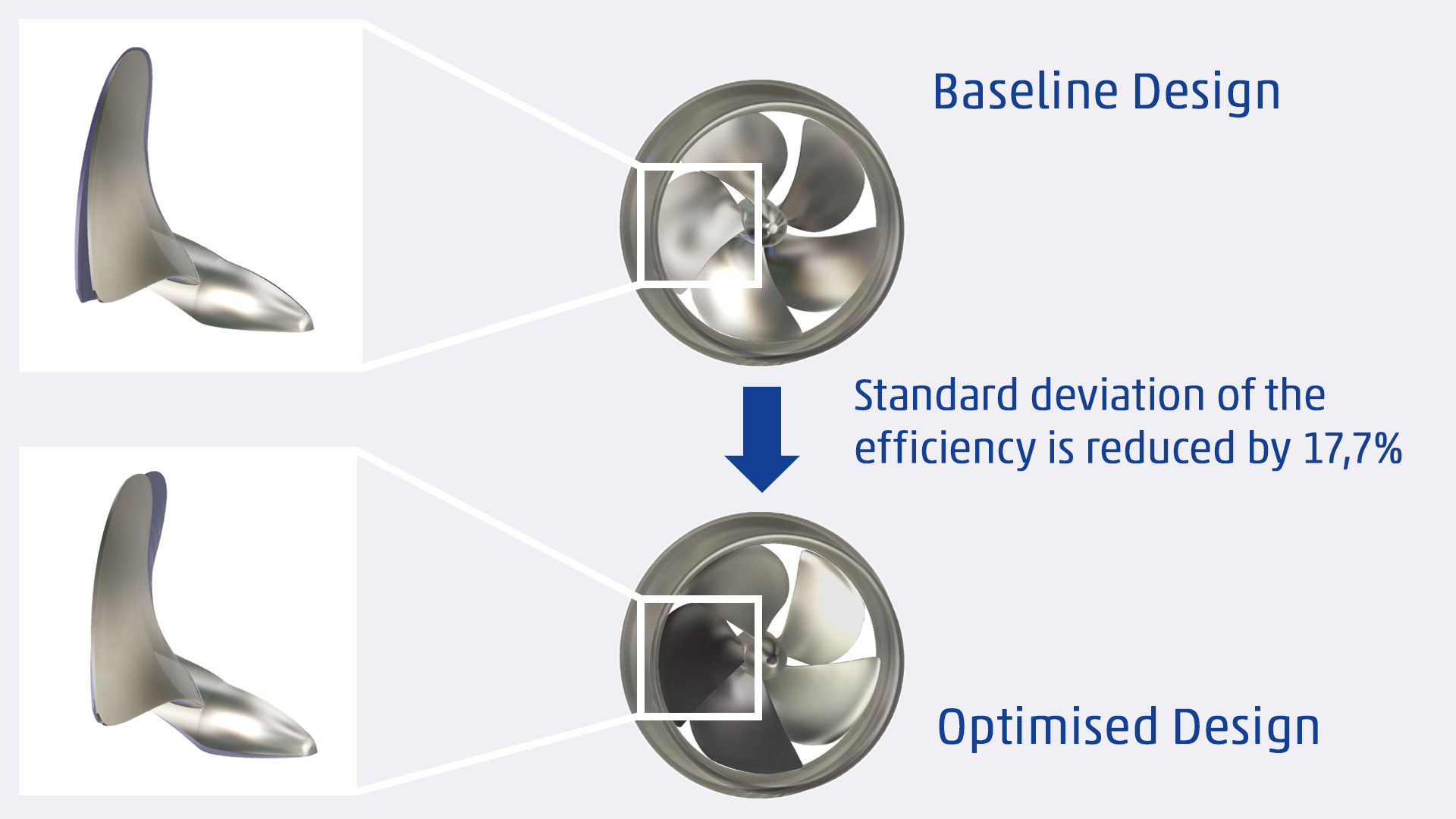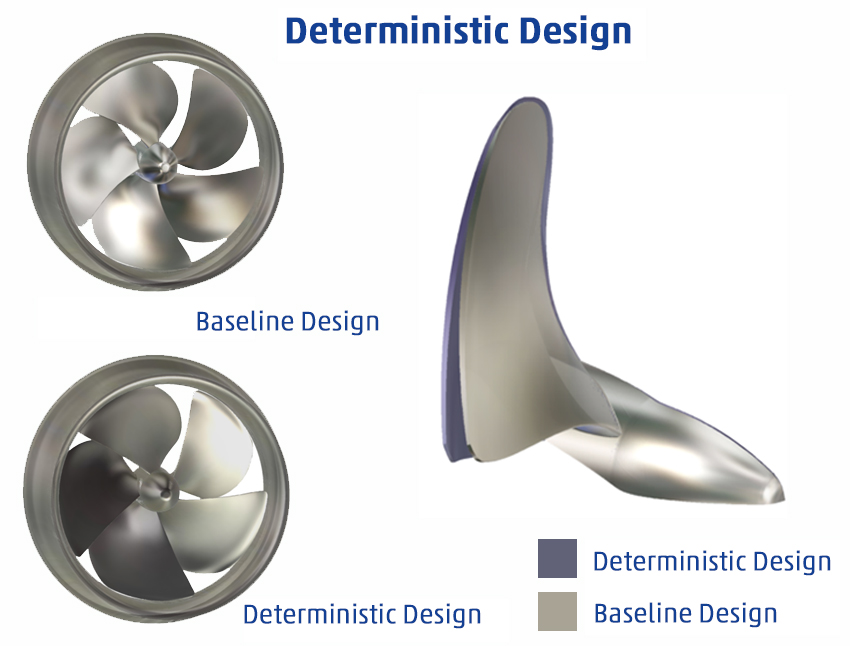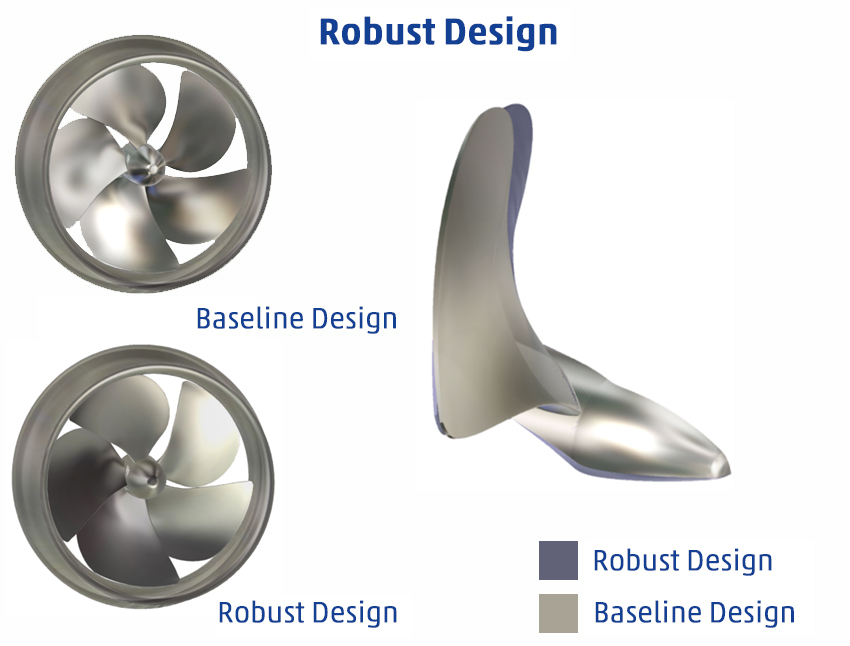Propeller Optimisation
Turbomachinery
The goal of this case is to optimise the shape of the propeller, but at the same time reduce the impact of manufacturing variability on the performances. This is of particular importance for marine applications, where even small performance drops during operation can have significant financial impact through increased operational costs. A standard (deterministic) optimisation is compared with a robust optimisation, taking these manufacturing uncertainties into account.
“The robust design optimisation reduces the standard deviation of the efficiency by 17.7% which means that the variability of the efficiency is reduced.”
Dirk Wunsch, Head of Robust Design group, NUMECA International
Challenges
- Perform an uncertainty quantification analysis to better understand the sensitivities of each geometrical feature
- Elaborate an optimisation accounting for these uncertainties (called “robust design optimisation”)
- Compare the robust design optimum with the deterministic one
Optimisation Results
Deterministic Design
Mean efficiency: +8,5%
Std. Dev. efficiency: +2,6%
Robust Design
Mean efficiency: +8,5%
Std. Dev. efficiency: -17,7%
Conclusions
Both optimisation studies, deterministic and robust lead to a performance increase of 8.5% in mean efficiency. The important difference is that the deterministic optimisation increases the standard variation of the efficiency (thus the variability of the efficiency) by 2.6%. The resulting design is more sensitive to manufacturing influence on the propeller shape.
The robust design optimisation, on the other hand, reduces the standard deviation of the efficiency by 17.7%. The resulting blade shapes vary significantly between the standard and robust optimal shapes. This underlines the importance of robust design optimisation.
In addition, uncertainty quantification studies of the propeller, allow to better understand the system behavior and to identify the most influential parameters by means of scaled sensitivity derivatives.



